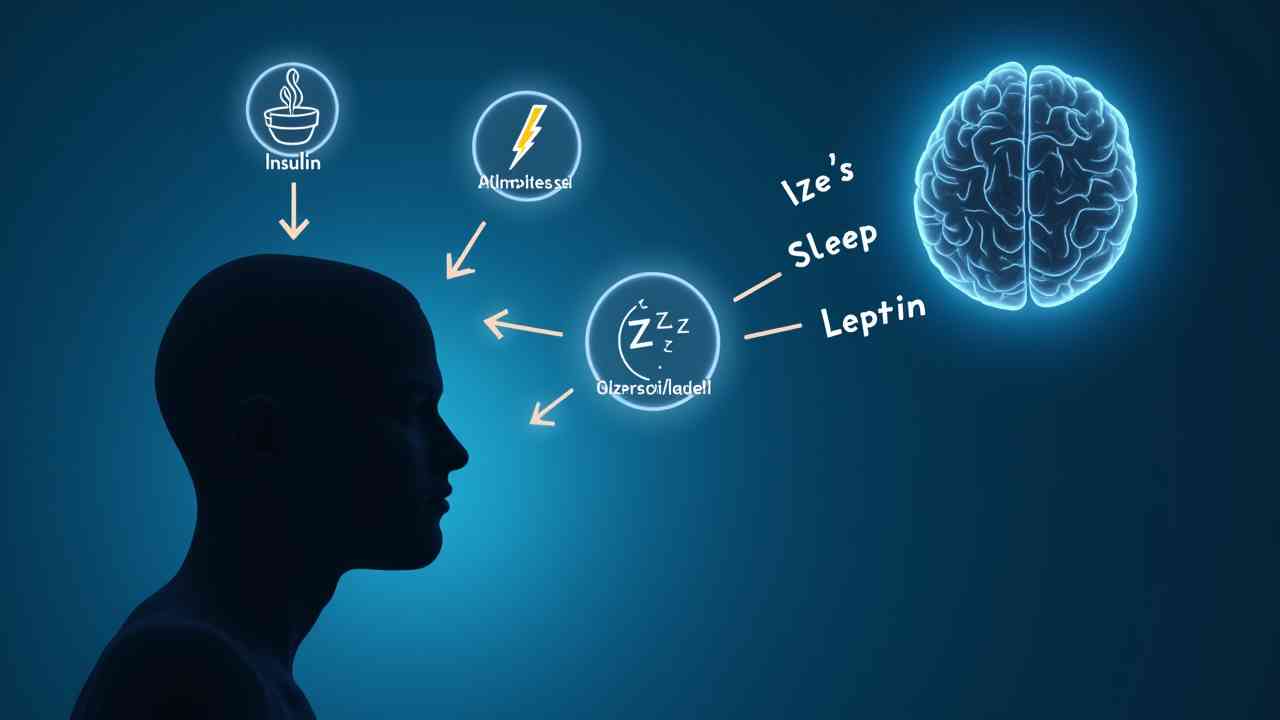
🧬 Hormones and Weight Loss: A Doctor's Guide to the Hidden Factors
🧬 A Doctor's Guide to Hormones and Weight Loss (It's Not Just Calories) 🧬
You are eating in a calorie deficit and exercising, but the scale just will not budge. It is an incredibly frustrating experience that can make you feel like your body is working against you. The truth is, it might be. While the principle of "calories in, calories out" is the foundation of weight loss, it is not the whole story. The real secret often lies in your hormones.
Think of hormones as the powerful chemical messengers that control your body's major functions. They are the traffic cops of your metabolism. They tell your body whether to burn fat for energy or to store it for later. Understanding the link between hormones and weight loss is the key to unlocking sustainable results, especially for women.
This guide will explain the three most important hormones involved in weight management. Let's explore the hidden factors behind your journey. ✅
- The 3 Key Hormones That Control Your Weight
When these three key players are out of balance, weight loss can feel nearly impossible. The goal of a healthy lifestyle is to get them working for you, not against you.
1. Insulin: The Fat-Storage Hormone 🍞
What it does: Insulin's main job is to manage your blood sugar. When you eat carbohydrates, insulin helps shuttle the resulting glucose into your cells for energy. However, when you eat too many refined carbs and sugars, your body releases a large amount of insulin. High levels of insulin are a powerful signal to your body to stop burning fat and start storing it.
How to balance it: The key is to manage your blood sugar. A diet that is low in processed sugars and refined carbohydrates, and rich in protein and fiber, will help to keep your insulin levels stable.
2. Cortisol: The Stress Hormone ⚡️
What it does: Cortisol is released in response to stress. In a world of chronic stress and poor sleep, our cortisol levels are often constantly elevated. High cortisol is a major driver of weight gain. It increases your appetite, makes you crave high-sugar "comfort foods," and, most importantly, promotes the storage of visceral belly fat—the dangerous fat deep in your abdomen.
How to balance it: You must make stress management a priority. This includes getting 7-9 hours of quality sleep per night and incorporating calming activities into your day, like a gentle walk, meditation, or deep breathing exercises.
3. Leptin: The Satiety (Fullness) Hormone 🍽️
What it does: Leptin is produced by your fat cells. Its job is to travel to your brain and say, "We have enough energy stored, you can stop eating now." It is your natural appetite suppressant. However, in people with obesity, the brain can become resistant to this signal. This is called leptin resistance. Your brain doesn't get the "full" message, so you continue to feel hungry even when you have enough energy stores.
How to balance it: The best ways to improve leptin sensitivity are to get adequate sleep, reduce inflammation by eating an anti-inflammatory diet (rich in omega-3s), and engage in regular exercise.
- What Are the Key Lifestyle Strategies for Hormonal Balance?
- Prioritize Protein and Fiber: These nutrients help to keep you full and stabilize blood sugar.
- Incorporate Strength Training: Building muscle is one of the best ways to improve your body's insulin sensitivity.
- Get 7-9 Hours of Quality Sleep: This is non-negotiable for regulating cortisol and leptin.
If you suspect you have a significant hormonal imbalance (like a thyroid issue or PCOS), the most important step is to see a doctor. They can run tests and provide a proper diagnosis. 🩺